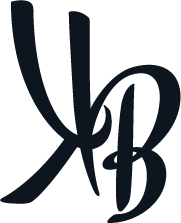Look at 2012 - Books
This past year was a year I indulged myself in all things non-fiction. I was on a business and psychology kick and most of what I read centered on those two topics. I read some mind-blowing stuff. With that in mind it was difficult for me to choose my three favorite books. I spent the summer driving between my family and friend’s homes in the west and I was able to listen to my favorite thriller/mystery author David Baldacci, as I drove, but unfortunately none of his books made my list this year.
Books I Loved
The Fault in Our Stars by John Green – FIOS is the only work of fiction to make my list this year and rightfully so. All the other fiction books I read paled in comparison to this delightful and heartbreaking story about two teenagers, Hazel and Augustus. The story centers on our main character Hazel who has a terminal (but for the time being, stable) form of cancer, and her new romance with Augustus, whom she meets at a cancer support group. I know cancer books are often full of melodrama and sadness. This story is very different. I will disclose that as a preteen I was obsessed with cancer books, stories with titles like I Want to Live and I Don’t Want to Die. I don’t know why the topic was so appealing to me at that age, but even then I enjoyed stories where the characters dealt with terrible pain. In FIOS, Green is masterful in his ability to create rich and nuanced characters that don’t feel like they need our pity and sorry. I will leave the rest of the tale for you to discover, but I will share one of my favorite quotes. Hazel is speaking to Augustus about her favorite book—but the quote sums up my feelings on this book as well.
Sometimes, you read a book and it fills you with this weird evangelical zeal, and you become convinced that the shattered world will never be put back together unless and until all living humans read the book.
It is no surprise that this book has already garnered awards and was included on many top 10 lists for 2012. Green deserves all the praise and I can’t wait to begin reading his earlier works.
Drive: The Surprise Truth About What Motivates Us by Daniel Pink – Drive is a book that asks us if we really understand why we do what we do. The premise of the book is that we do things for one of three reasons; Autonomy, Mastery and Purpose. I enjoy Pink’s ability to take stories and studies from business and education and weave them into an enjoyable book that anyone in any industry would enjoy. As a teacher I have been able to use the information to make my assignments more engaging for my students.
Bringing Up Bebe: One American Mother Discovers the Wisdom of French Parentingby Pamela Druckerman – Druckerman is an American journalist and she has written a witty and delightful memoir where she shares her struggles and what she has learned about French parenting while raising her three children in Paris. I know it seems odd that I would choose a parenting book as one of my three favorite books, but I enjoy consuming information on all sorts of topics. There were two things that appealed to me so much about this book, first it is about France and I will admit that I have a secret (not so secret now) love affair with Paris. The second, I spend my days with other people’s children and I often lament about American ideas on parenting. French parenting is based on two principles: the first is the Pause, and the second is the Cadre. The Pause is about letting a child fuss or cry for a few minutes (never more than 5 or 10, depending on the age of the child) to make sure that something is really upsetting the child or if they just are trying to settle themselves. French parent's believe that the Pause works because babies aren’t helpless animals and can learn things—they are teaching the child confidence, serenity and how to be aware of other people. The second principle to successful parenting is in the Cadre. Cadre means that kids have very strict limits and the parents will heavily enforce the limits—however children are given tremendous freedom within the limits. Druckerman shares many of her own personal stories in the book which highlight her struggle to find a balance between her American upbringing and trying to incorporate the new French techniques she was learning. Her observations led to this identification of the philosophical differences between American and French parenting.
We Americans assign ourselves the job of pushing, stimulating, and carrying our kids from one developmental stage to the next. The better we are at parenting, we think, the faster our kids will develop…French parents just don’t seem so anxious for their kids to get head starts. They don’t push them to read, swim, or do math ahead of schedule. They aren’t trying to prod them into becoming prodigies. French parents believe in “awakening” and “discovery”.
Needless to say if you are interested in different parenting ideas this book is an excellent read.
